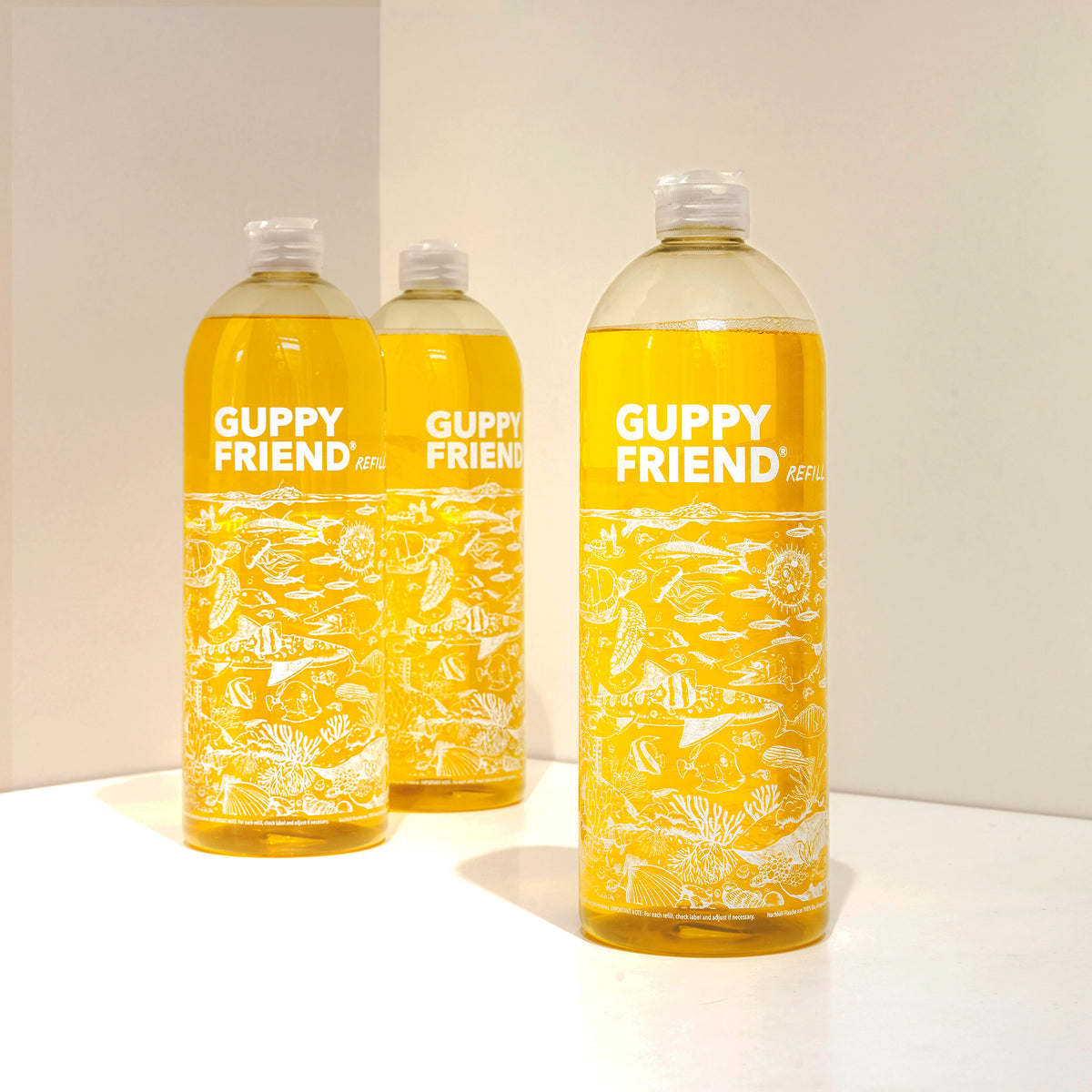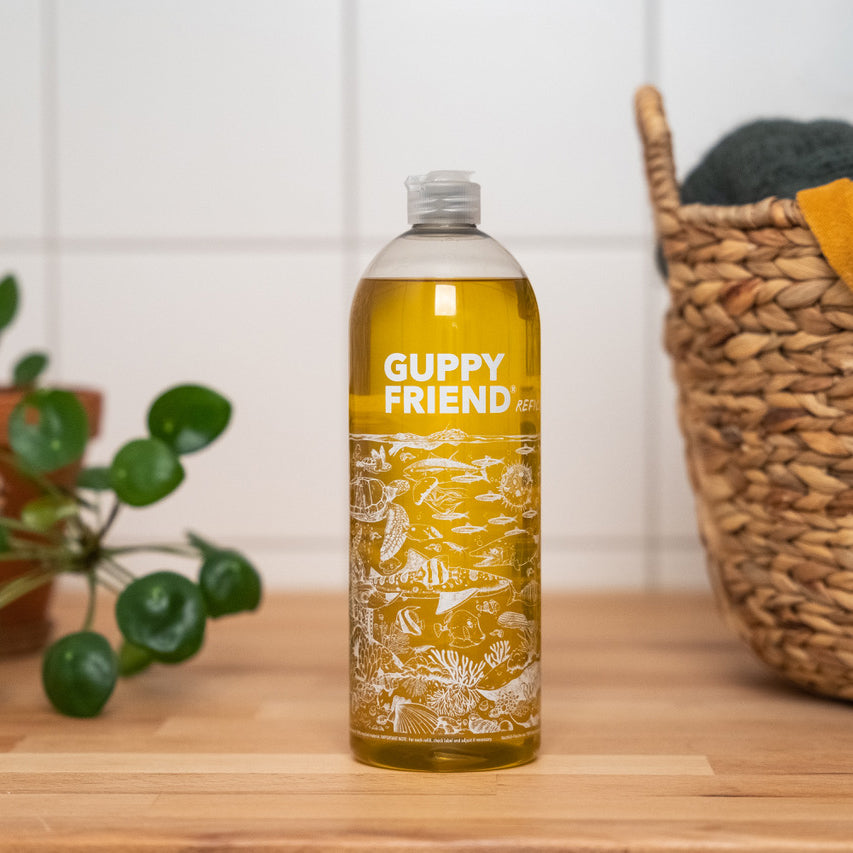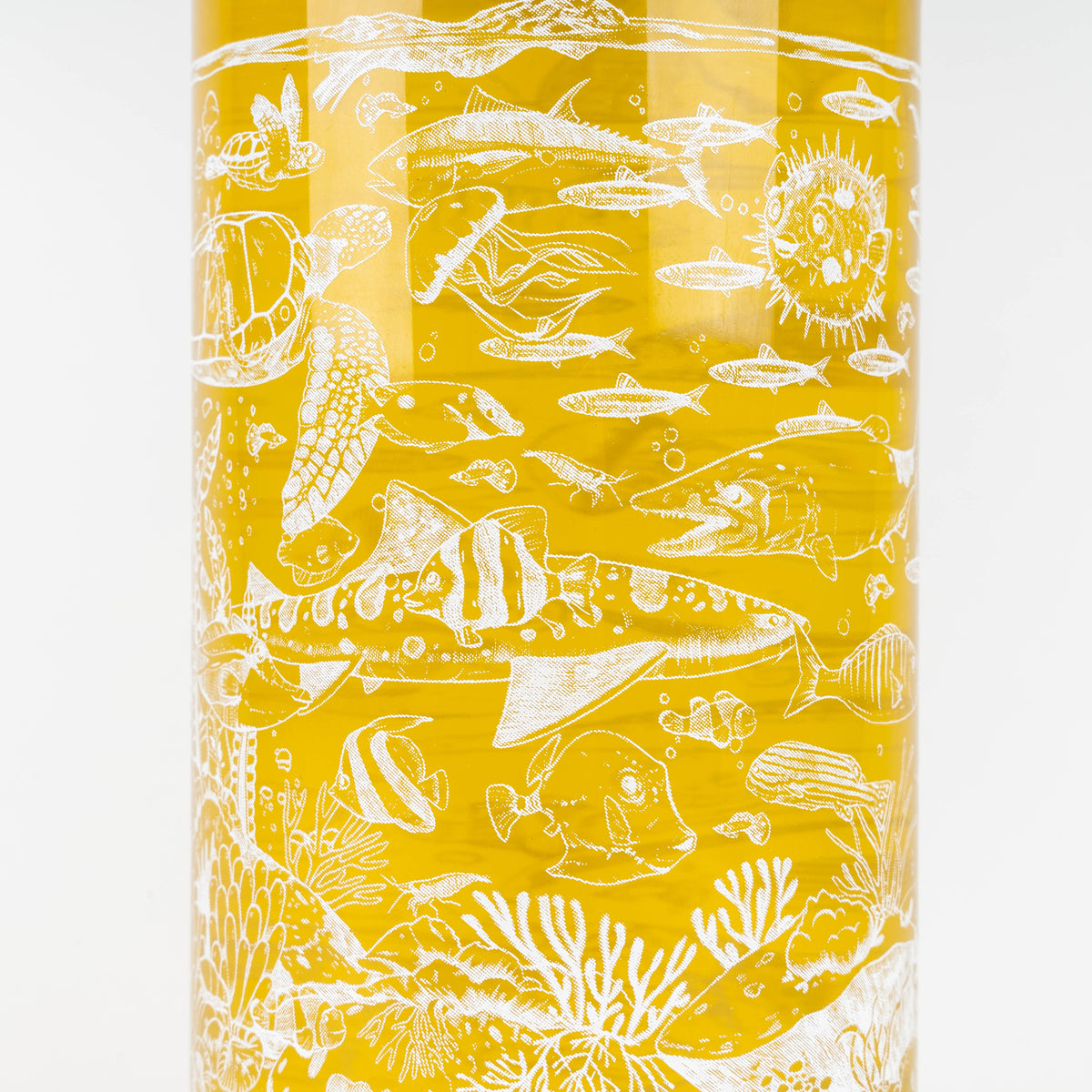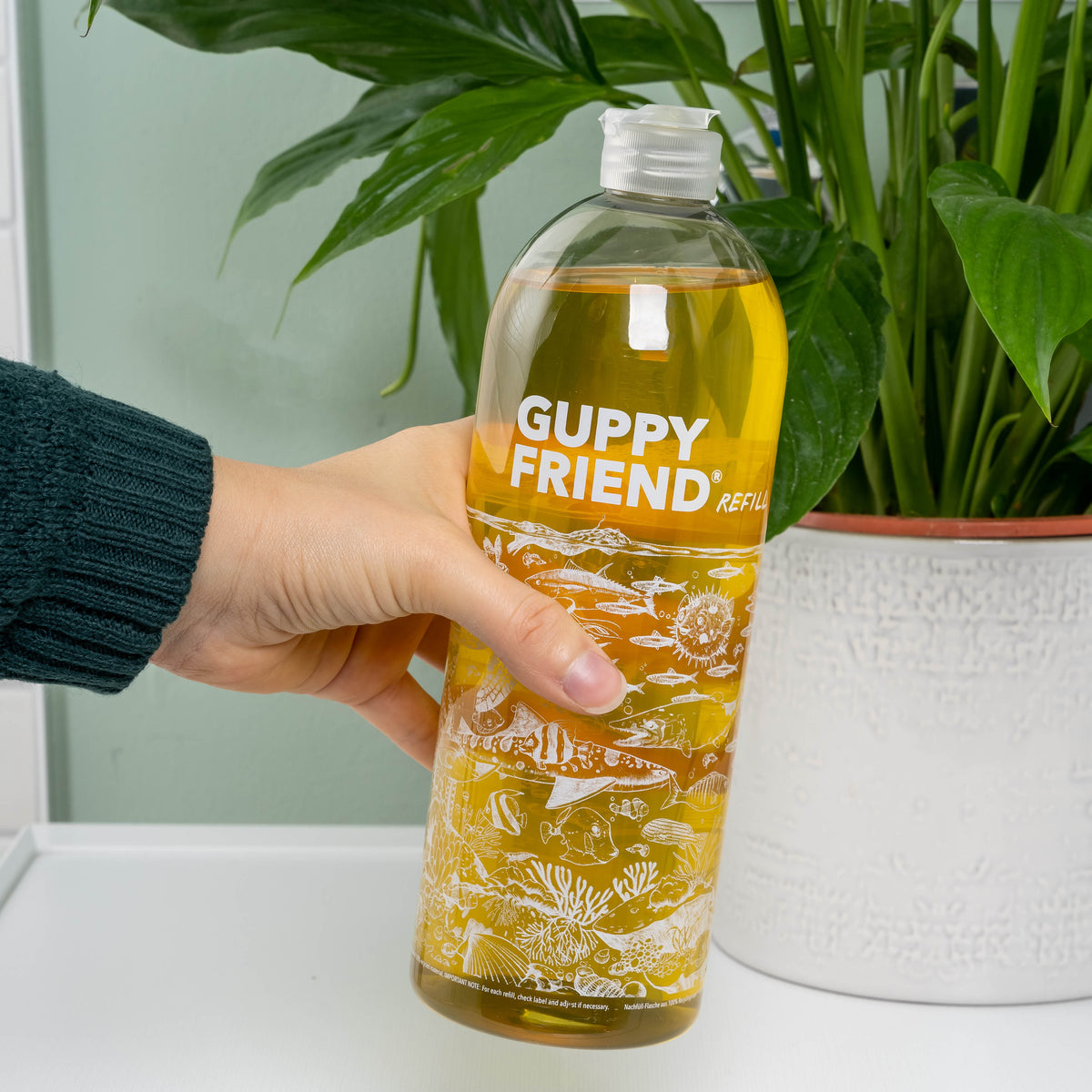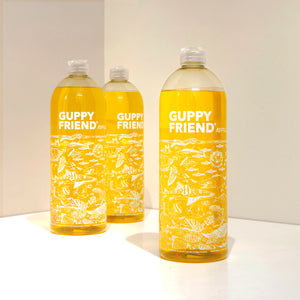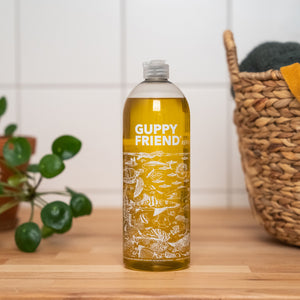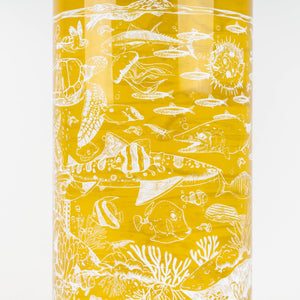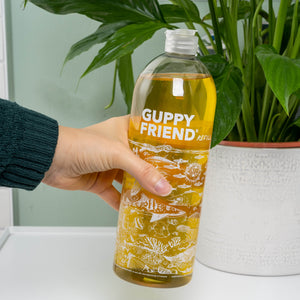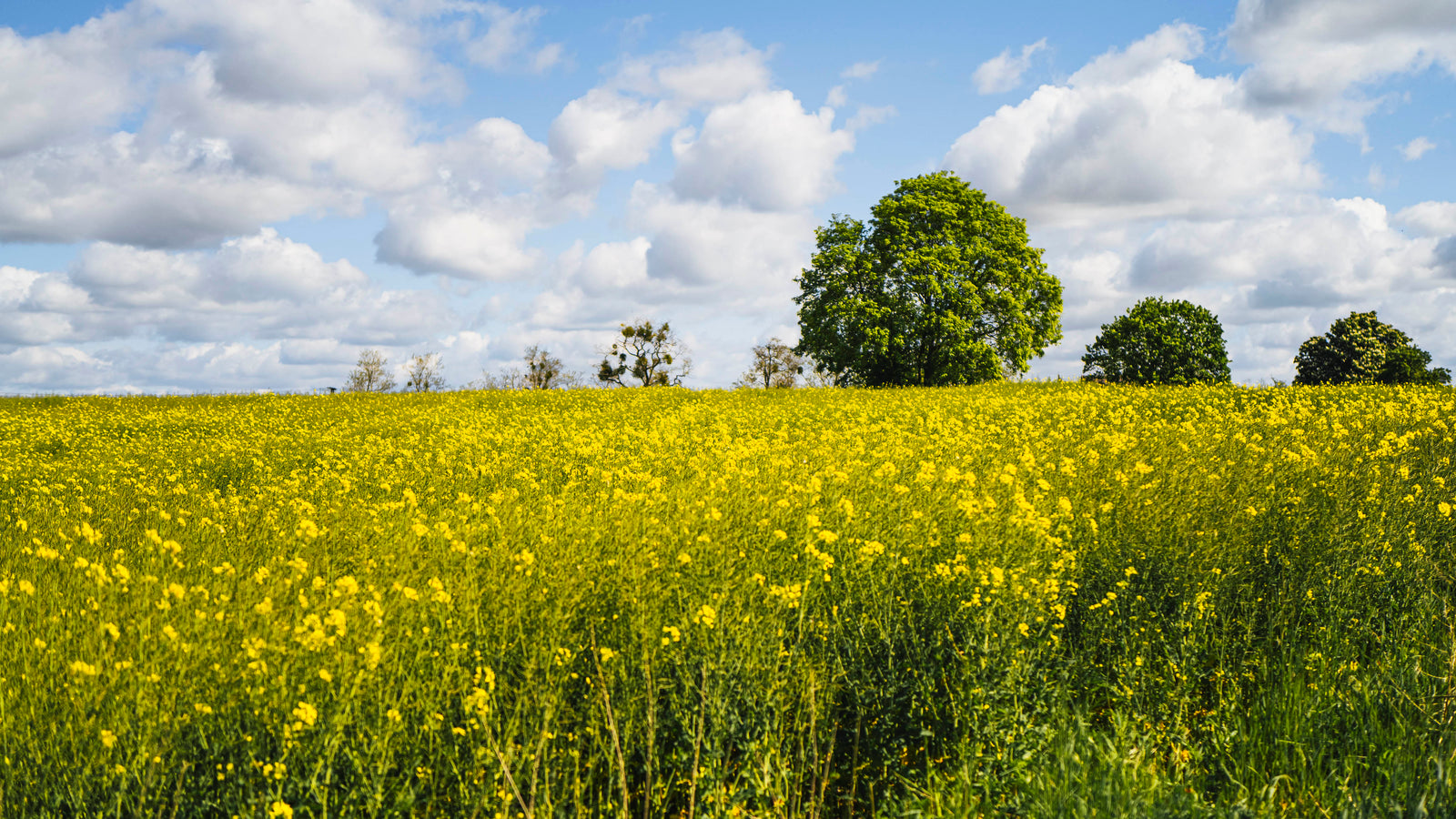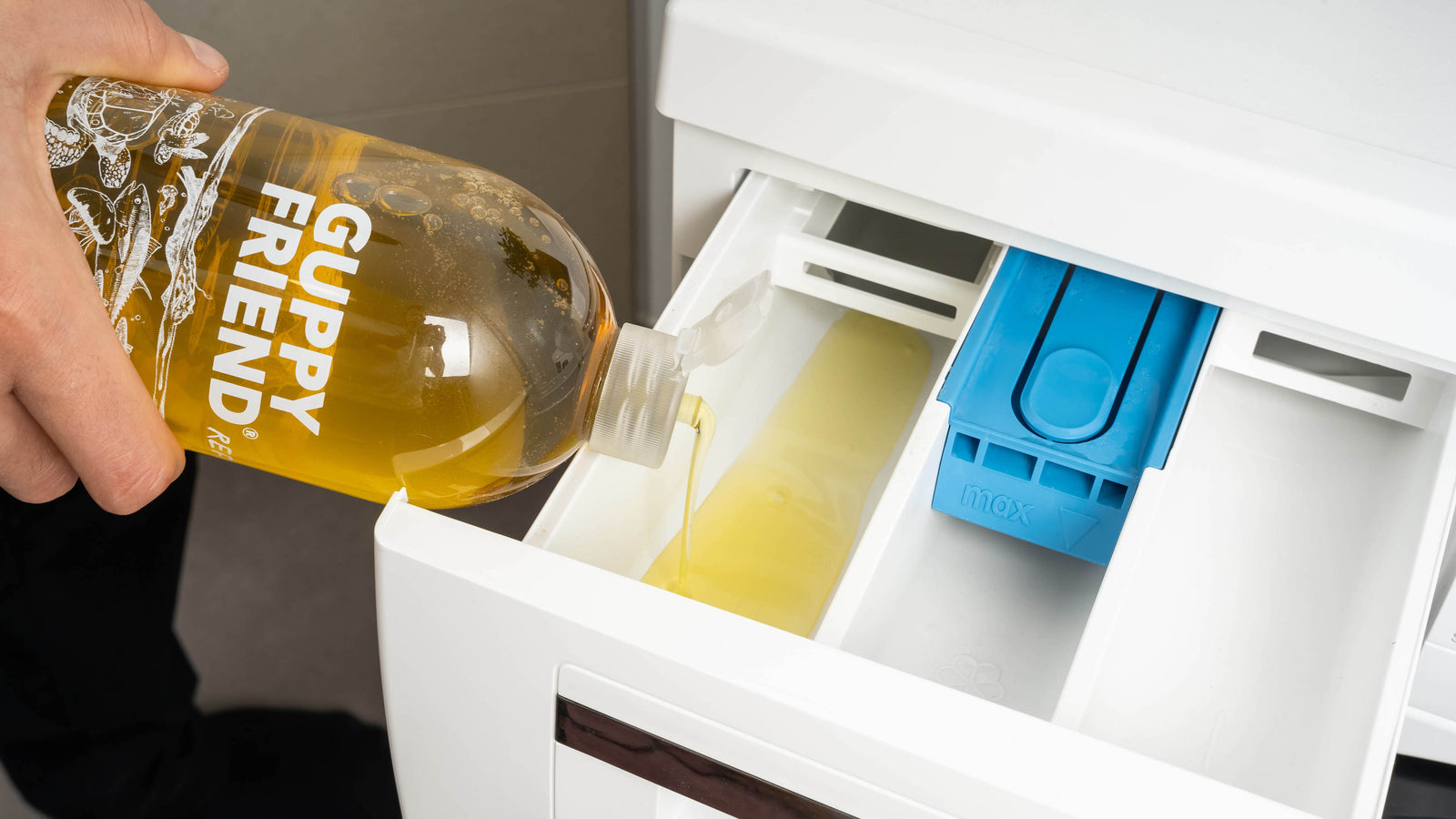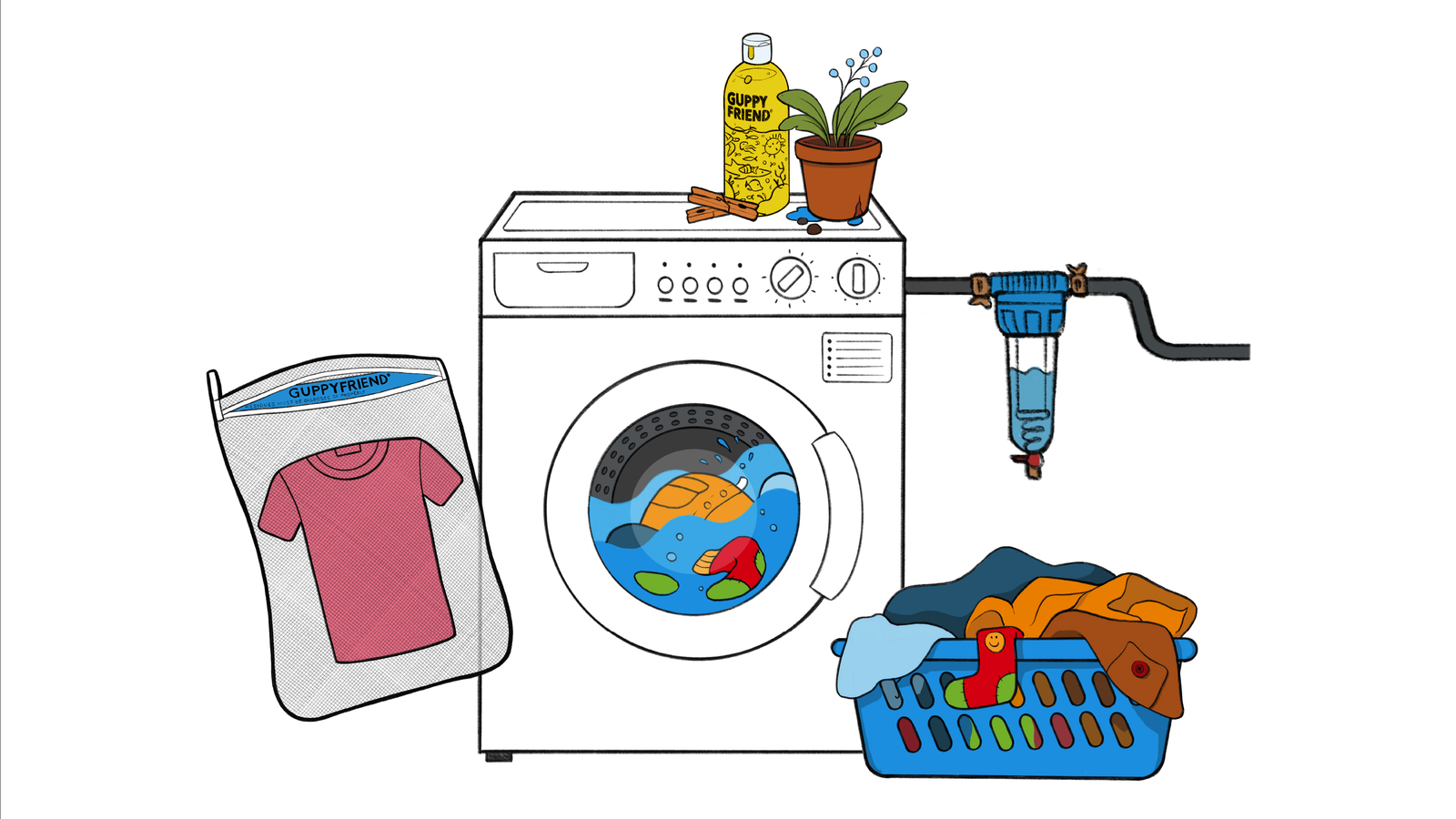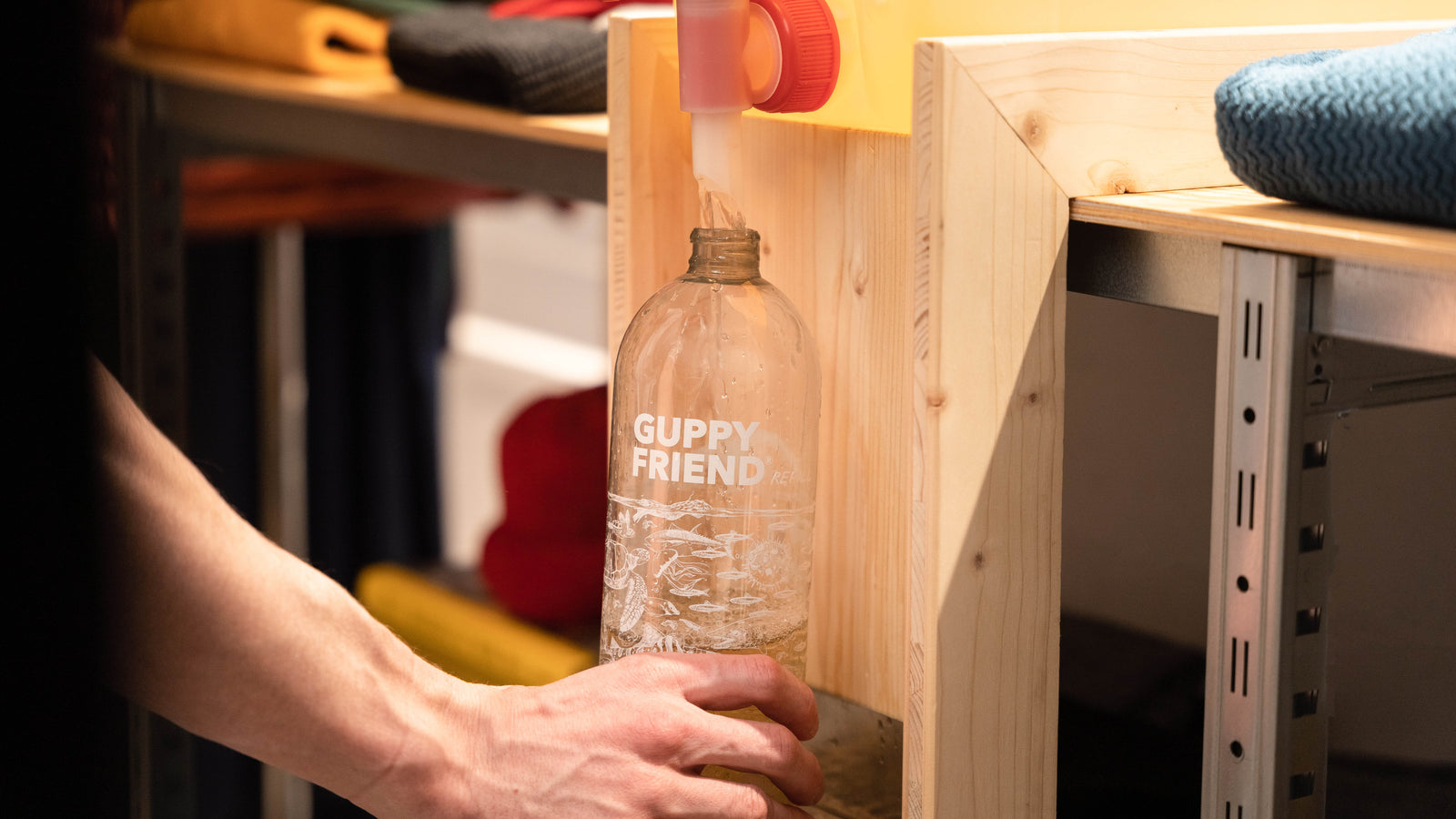The GUPPYFRIEND Washing Bag has reduced microplastic pollution in countless households. While your textiles are protected, microplastic fibers are stopped while washing within the GUPPYFRIEND Washing Bag, unknowingly, plastic often enters the environment from your detergent. Just like the plastic fibers from our clothes, the microplastics from detergents pollute the environment and endanger our health. Both are important to keep microplastics from your wastewater: the GUPPYFRIEND Washing Bag and a suitable detergent. The GUPPYFRIEND Laundry Detergent doesn't contain solid microplastics or liquid plastics. Instead of relying on environmentally and climate-damaging palm oil as a main washing ingredient - as is usually the case - the GUPPYFRIEND detergent cleans with natural soap based on locally grown and GMO-free rapeseed oil.

